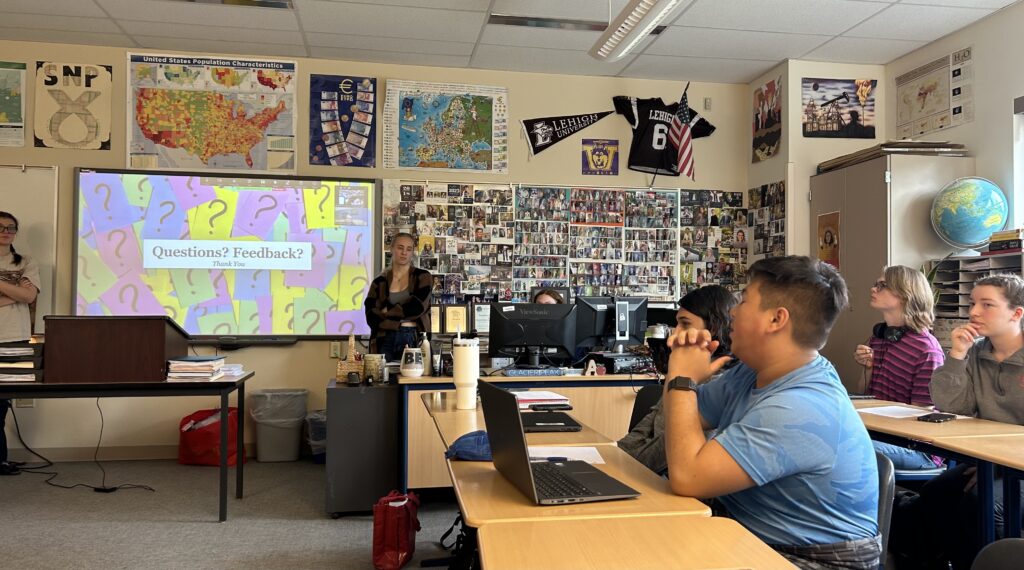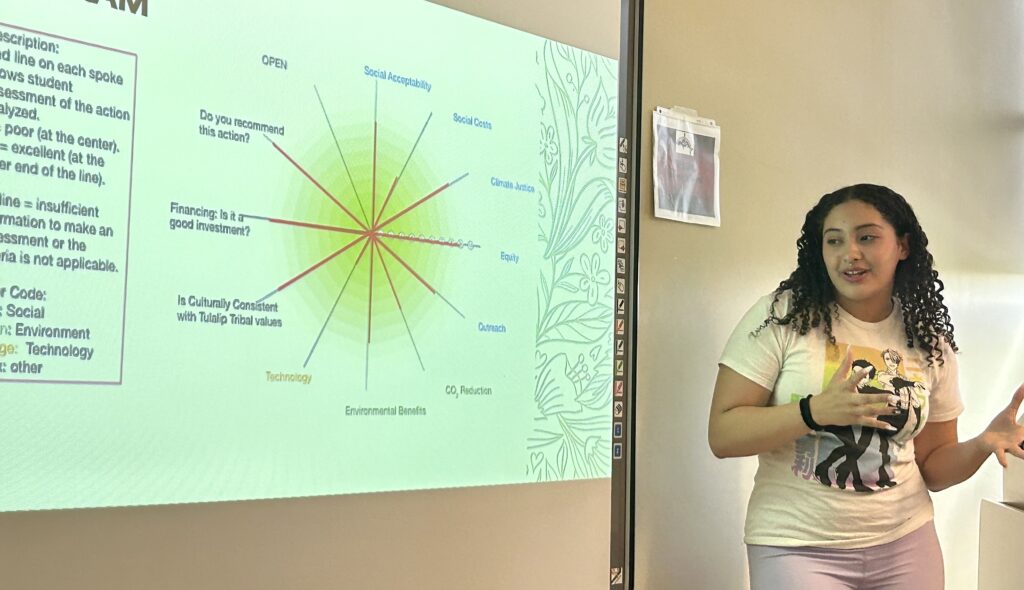Note: PEI served as the fiscal sponsor for a civic engagement curriculum development project led by Lisa Eschenbach and David Ketter. Now that curriculum, Student Climate Assembly: Climate Change in the Civics Classroom, is complete. In the following article, Eschenbach shares the development process and ways educators can apply the curriculum.
The Student Climate Assembly (SCA) curriculum equips students with the knowledge and skills to engage meaningfully with climate change by integrating social studies and science for a holistic understanding of its social, economic, political, and environmental impacts.
In September 2024, we published a high-school civics unit the Student Climate Assembly: Climate Change in the Civics Classroom on OSPI’s OER website. It is FREE for civics and other teachers to use. This high school civics unit engages students in addressing climate change at the local level. Through active participation in climate assemblies, students:
- learn about the causes, impacts and solutions to climate change
- analyze local climate action plans and deliberate on their effectiveness
- present their findings to their city, county or tribal council as a culmination of their work
- meet several civics courses’ requirements.
“I used to think teaching about climate would be political, technical and challenging. Now I think it is a meaningful tool for active civic learning in the realms of science, local governmental policy, and student activism.”
— Civics Teacher Eric Wickwire

Students overwhelmingly had a positive response to the climate assembly. In our polarized political climate, all but three of the 270 students who participated thought that climate assemblies should be held in other civics classes in the future. One student wrote: “[This unit] proves that we as a people and a group can make a change.” Another student wrote, “Before this unit, I used to think climate change was a big deal that not enough people care about. Now I think it’s a big deal that not enough people care about, but at least there are people who do.” Students are increasingly concerned about climate change and this project provides students with a way to voice their concerns and ideas directly to decision-makers.
We piloted SCAs in high-school civics classes in Bellingham with teacher Steven Ayers, Tulalip with Christie Ryba-Johnson, Snohomish with Ryan Hauck and Ellensburg with Eric Wickwire. Wickwire wrote, “I used to think teaching about climate would be political, technical and challenging, now I think it is a meaningful tool for active civic learning in the realms of science, local governmental policy, and student activism.” The sustainability lead in Ellensburg supported this project and attended student final presentations. She wrote in the project evaluation, “This type of project is crucial for engaging young people in actions for addressing climate change. There is so much misinformation about climate change that we need to deliberately inform students. They are the future. They need to be well informed and this is a good way to do it.”
Teacher-friendly curriculum:
The new Student Climate Assembly full curriculum includes daily lesson plans with teacher and student resources. We used UDL (Universal Design for Learning) principles and interdisciplinary learning standards. Learn how to find local climate action plans and resources for student engagement. The curriculum also includes assessment tools and resources.
The Student Climate Assembly has been led by Lisa Eschenbach and David Ketter since 2021. We were honored to work with project manager Pacific Education Institute. This funding proviso was sponsored by representatives Sharon Shewmake and Mia Gregorson.
To learn more, read about the SCA project on the ClimeTime website and watch a six-minute video highlighting student experiences.
For more, contact Lisa Eschenbach [email protected] (206) 947-6194.
